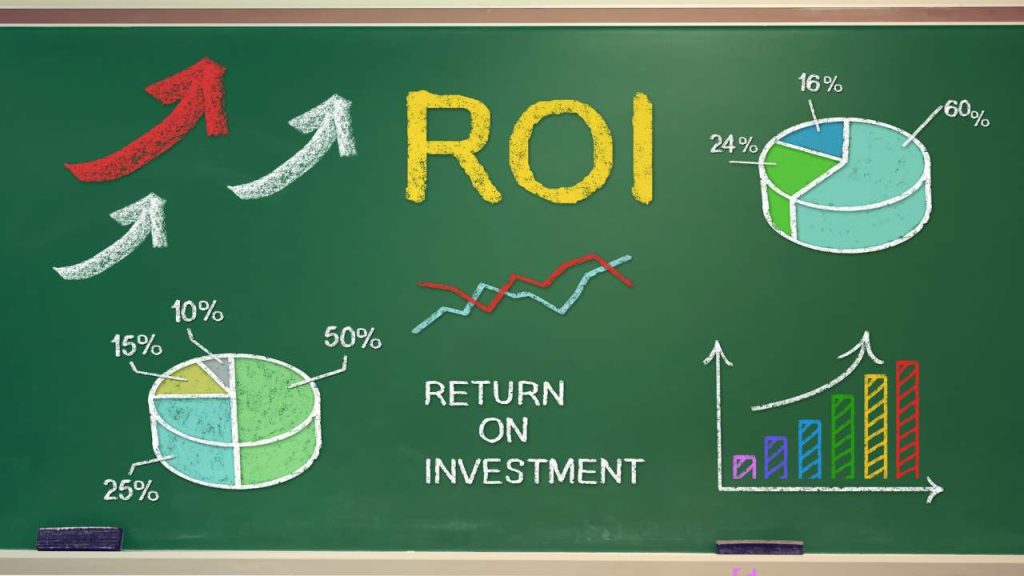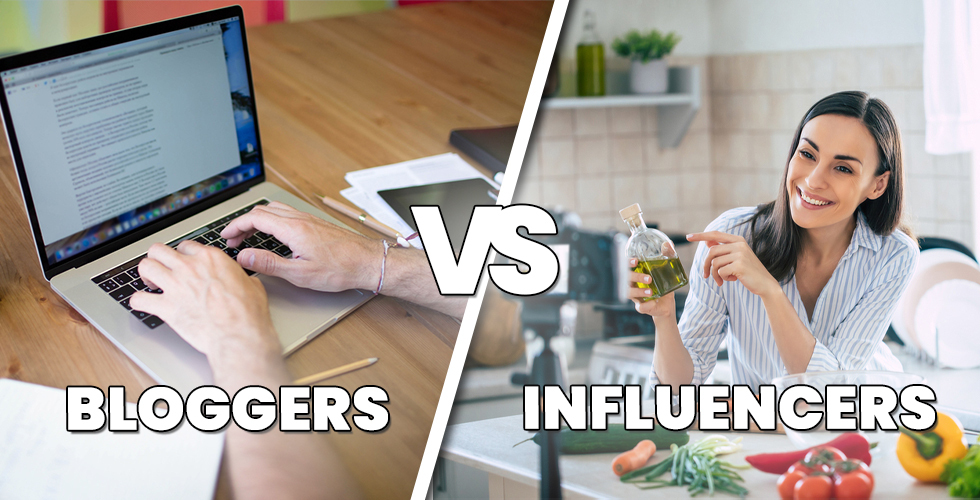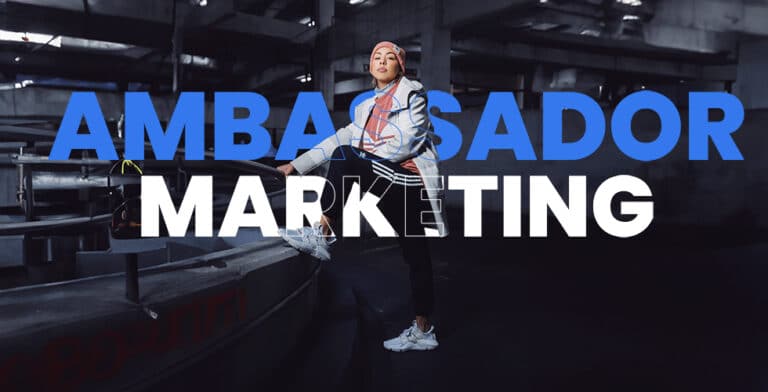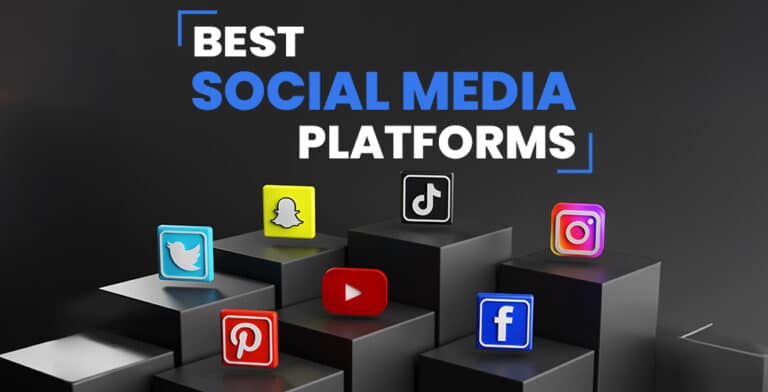E-commerce businesses today need to leverage social media and online content strategies that best resonate with their target audiences. But with the rise of both influencers and niche bloggers, it can be challenging to determine the right partnerships to drive brand awareness and sales. Should you collaborate with influencers for their expansive reach? Or partner with bloggers to create tailored content that engages specific customer demographics?
In this post, we’ll compare the strategic roles of bloggers versus influencers for eCommerce marketing success. You’ll learn the unique benefits each can offer and how to determine which approach aligns best based on your business goals, ideal customers, content strategy, and budget.
We’ll provide tactics and best practices for leveraging the power of bloggers versus maximizing the influence of social media personalities. You’ll gain insight on when to focus your efforts on one or the other, as well as how to effectively combine blogger partnerships and influencer collaborations for optimal results.
With the right partnerships and an integrated content marketing approach, bloggers and influencers together can amplify your e-commerce brand’s authority and relevance with consumers. This drives greater online visibility and conversions over the long term.
Benefits of Partnering with Bloggers in Ecommerce Marketing
Bloggers have established themselves as trusted authorities in their respective niches. This credibility gives them a unique power to influence consumer decisions. When partnering with bloggers, eCommerce businesses can enjoy the following benefits:
Authenticity and Trustworthiness
One of the key advantages of collaborating with bloggers is the authenticity and trustworthiness they bring to the table. Bloggers often build a loyal and engaged audience who trust their opinions and recommendations. By associating your e-commerce brand with a reputable blogger, you can enhance your brand’s credibility and gain the trust of potential customers.
Targeted Audiences and Niche Markets
Bloggers have the ability to reach specific target audiences and niche markets. Unlike traditional advertising methods, which cast a wide net, bloggers have established followers who are genuinely interested in the niche topics they cover. By partnering with a blogger who aligns with your product or service, you can effectively target your ideal customers and maximize your marketing efforts.

SEO Boost and Increased Website Traffic
Blogging plays a vital role in search engine optimization (SEO). When bloggers feature your e-commerce brand and link back to your website, it can significantly boost your website’s visibility in search engine results. Increased website traffic translates into higher conversion rates, ultimately leading to greater business success.
Effective Strategies for Collaborating with Bloggers
To harness the power of bloggers in e-commerce marketing, it is essential to implement effective strategies. Consider the following approaches:
Sponsored Content and Product Reviews
Sponsored content and product reviews are popular ways to collaborate with bloggers. By compensating bloggers for featuring your products or services, you can tap into their audience and generate buzz around your brand. Authentic and detailed reviews from reputable bloggers can drive customers to make purchasing decisions.
Guest Blogging and Collaborative Content Creation
Guest blogging and collaborative content creation allow e-commerce businesses to leverage the expertise and reach of bloggers. By inviting bloggers to contribute to your brand’s blog or co-create content, you can expose your brand to its audience while providing valuable content to your own followers.
Hosting Giveaways and Contests
Giveaways and contests organized in collaboration with bloggers can create excitement and engage potential customers. By leveraging bloggers’ influence, you can increase participation and maximize brand exposure. These events provide an opportunity to collect user-generated content and expand your brand’s reach across various social media platforms.
Using Influence of Influencers in Ecommerce Marketing
Influencers are individuals who have amassed a significant following on various social media platforms. Engaging with influencers can bring the following advantages to your e-commerce marketing efforts:
Social Media Reach and Engagement
One of the primary strengths of influencers lies in their extensive social media reach. They have dedicated followers who actively engage with their content. By partnering with influencers, e-commerce businesses can tap into this engaged audience and amplify brand awareness.

Expertise in a Specific Industry or Niche
Influencers often specialize in a particular industry or niche. Their expertise provides credibility and positions them as thought leaders. When influencers endorse your e-commerce brand, their followers perceive your products or services as trustworthy, which can result in increased sales.
Building Brand Awareness and Credibility
Influencers have the power to expose your e-commerce brand to a vast audience, allowing you to quickly build awareness and credibility. Through their captivating content and personal recommendations, influencers can create a buzz around your brand and attract new customers.
Best Practices for Partnering with Influencers
To optimize the impact of influencers in e-commerce marketing, it is crucial to follow best practices. Take note of these strategies:
Sponsored Posts and Takeovers
Sponsored posts and takeovers enable influencers to create dedicated content that highlights your e-commerce brand. By compensating influencers for their endorsement, your brand gains exposure to their loyal followers, increasing the chances of conversion.
Influencer-Generated Content and Product Recommendations
Influencers are skilled content creators who can generate visually appealing and compelling content. By working closely with influencers to create branded content and product recommendations, you can leverage their creativity and captivate your target audience.
Social Media Collaborations and Live Events
Collaborating with influencers on social media campaigns and live events can amplify your brand’s presence and engage with a wider audience. Whether it’s hosting a live Q&A session or launching a social media challenge, these collaborations foster a sense of community and generate excitement around your products or services.
Bloggers vs Influencers: Considerations for E-commerce Marketing
When deciding between bloggers and influencers for your e-commerce marketing campaign, several factors come into play. Consider the following considerations:
Target Audience and Market Fit
Understanding your target audience and their preferences is essential. Evaluate whether bloggers or influencers align better with your audience demographics and niche market.
Understanding Your Ideal Customer Profile
Identify your ideal customer profile and analyze their online behavior. Are they more likely to be swayed by bloggers’ in-depth reviews, or are they more responsive to influencers’ captivating social media content?
Identifying the Platform Preferences of Your Target Audience
Different audiences prefer different platforms. Bloggers primarily operate on blogs, while influencers excel on social media platforms like Instagram, YouTube, or TikTok. Determine which platforms your target audience frequents to ensure maximum visibility.
Assessing the Authenticity and Alignment of Potential Partners
Collaborating with authentic and aligned partners is. Research potential bloggers and influencers to ensure their values, content, and audience align with your image and goals.
Content Strategy and Objectives
Consider the type of content that would have the most impact on your target audience. Are written blog articles more effective, or do visually appealing social media posts hold more potential? Define your content strategy based on your objectives.
Leveraging Written Content with Bloggers
If your e-commerce brand relies heavily on written content to educate and convince customers, bloggers may be a better fit. Their in-depth reviews and expertise can help convey your brand message effectively.
Harnessing Visual and Video Content with Influencers
If your products or services are highly visual and cater to a younger audience, influencers who excel in visual or video content may be more beneficial. Their dynamic and creative content can grab attention and showcase your brand in a captivating manner.
Balancing Unique and Diverse Content Approaches
Consider diversifying your content approaches by combining bloggers and influencers. Balancing unique perspectives and approaches can create a well-rounded marketing campaign that caters to different preferences within your target audience.
Budget and Resources Allocation
Determine your budget and allocate resources accordingly, taking into account the cost-effectiveness and return on investment (ROI) of collaborating with bloggers and influencers.
Determining Cost-Effectiveness and ROI of Bloggers
Analyze pricing models and value propositions of bloggers to ensure you are getting the best return on investment. Consider factors such as the size of their audience, engagement rates, and their track record when evaluating cost-effectiveness.

Analyzing Pricing Models and Value Propositions of Influencers
Similar to bloggers, evaluate the pricing models and value propositions of influencers. Consider metrics like follower count, engagement rates, and the quality of their content when assessing their worth.
Allocating Resources Based on Long-Term Strategy and Goals
Take a long-term approach when allocating resources. Consider your overall marketing strategy and goals to determine the most effective partnership options between bloggers and influencers.
Conclusion
The debate between bloggers and influencers when it comes to e-commerce marketing is not a matter of choosing the better option, but rather understanding which strategy suits your business goals and target audience.
Both bloggers and influencers bring unique advantages to the table. By carefully considering factors such as target audience, content strategy, authenticity, and budget, eCommerce businesses can make informed decisions to maximize their marketing efforts.
Remember, whichever approach you choose, authenticity, creativity, and a genuine connection with your target audience should always remain at the forefront of your marketing efforts. Happy marketing!
Frequently Asked Questions (FAQs)
What is the main difference between bloggers and influencers?
Ans: Bloggers primarily operate through written content on blogs, while influencers create content primarily on social media platforms like Instagram, YouTube, or TikTok.
How can bloggers benefit my e-commerce business?
Ans: Bloggers bring authenticity, trustworthiness, targeted audiences, and enhanced SEO benefits to e-commerce marketing campaigns. Their expertise and in-depth reviews help sway consumer decisions.
What advantages do influencers bring to eCommerce marketing?
Ans: Influencers have extensive social media reach, industry-specific expertise, and the ability to build brand awareness and credibility. They can expose your brand to a wide audience and engage their followers with compelling content.
Should I focus solely on bloggers or influencers, or can I combine both strategies?
Ans: Combining both strategies allows for diversification and reaching a wider audience. By leveraging bloggers’ written content and influencers’ visual or video content, you can cater to different preferences within your target audience.
What factors should I consider when deciding between bloggers and influencers for my marketing campaign?
Ans: Target audience, understanding your ideal customer profile, platform preferences, authenticity, content strategy, budget, and long-term goals should all be considered when deciding between bloggers and influencers.




